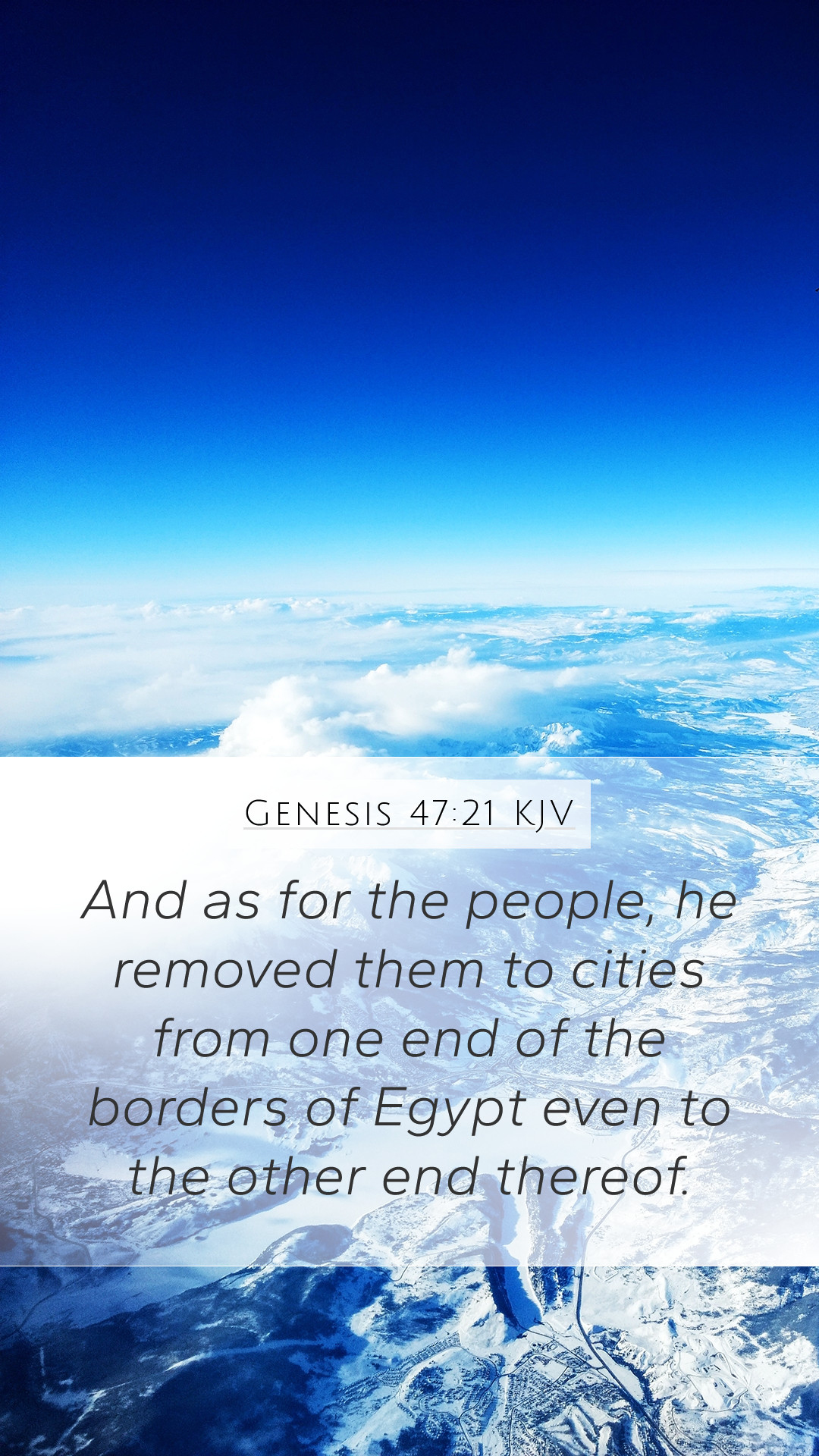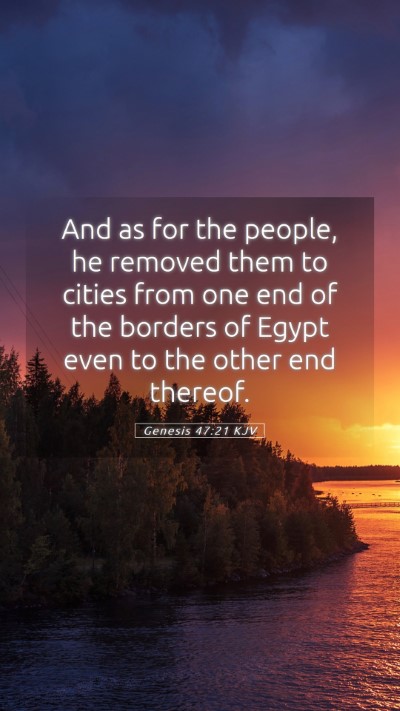Bible Verse Meaning and Interpretation for Genesis 47:21
Genesis 47:21 states: "And as for the people, he removed them to cities from one end of the borders of Egypt even to the other end thereof." This verse provides profound insights into the socio-economic changes during the time of Joseph in Egypt. Below we explore the key themes and interpretations derived from respected public domain commentaries by Matthew Henry, Albert Barnes, and Adam Clarke.
Context and Background
In the narrative of Genesis, Joseph rises to prominence in Egypt by interpreting Pharaoh’s dreams. This leads to strategic preparations for a forthcoming famine. The verse in question reflects significant shifts in governance, property, and the welfare of the people.
Summary of Insights
-
Matthew Henry’s Commentary:
Henry emphasizes the drastic measures Joseph took to ensure the survival of the Egyptian populace. He notes that removing people to cities meant that they relinquished their personal lands in exchange for food. This reflects both a wise policy of resource distribution and a method of managing the crisis.
-
Albert Barnes’ Notes:
Barnes interprets this action as a consolidation of power and control. By centralizing the population, Joseph ensured governance and order during a time of scarcity. He also discusses the implications for individual land ownership, suggesting a shift towards a more state-driven economy.
-
Adam Clarke’s Commentary:
Clarke delves into the implications of such relocations, asserting that it could lead to both benefits and hardships. While it secured resources for the people, it also enforced a systematic dependence on the state, altering their local identities and economies.
Theological Implications
The theological implications of Genesis 47:21 suggest a divine orchestration of events, leading to the preservation of God’s chosen people through Joseph's governance. It raises questions about authority, stewardship, and the intersection of faith with practical governance during crises.
Philosophical Reflections
Reflecting on this verse, one may ponder the dynamics of power and dependency. This scenario poses significant questions: How should leaders manage resources? What is the relationship between authority and care? The actions of Joseph suggest a pragmatic approach to leadership during national distress, demonstrating that governance can be both a divine calling and a challenging responsibility.
Application to Daily Life
Understanding Genesis 47:21 allows modern readers to glean lessons on resource management, community welfare, and the importance of adapting to societal challenges. Reflecting on these themes can guide personal ethics and leadership roles within community settings, whether in church, business, or family life.
Related Bible Verses
- Genesis 41:30-31: Discusses the nature of the famine that led to these drastic changes.
- Proverbs 21:5: Highlights the importance of planning and diligence in managing resources.
- Matthew 25:14-30: The Parable of the Talents teaches about stewardship and responsibility over resources.
Conclusion
In conclusion, Genesis 47:21 serves as a critical verse in understanding the tensions between survival, governance, and individual rights during a severe crisis. Through the insights of established commentaries and the exploration of its broader implications, we gain valuable lessons for both spiritual and practical applications in our lives today.
Further Study Suggestions
For those interested in a deeper dive into the themes of Genesis 47:21, consider participating in bible study groups or utilizing bible study resources to facilitate discussions about governance, ethics, and stewardship within the context of Scripture.
Engaging with online bible study platforms can offer additional insights into biblical exegesis, enhancing your understanding of how such verses apply today.


